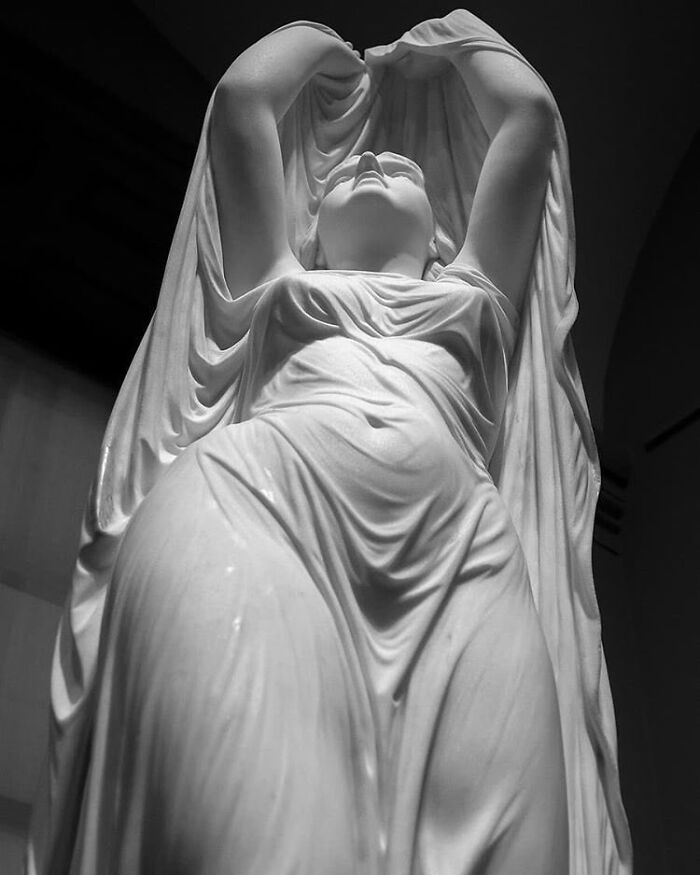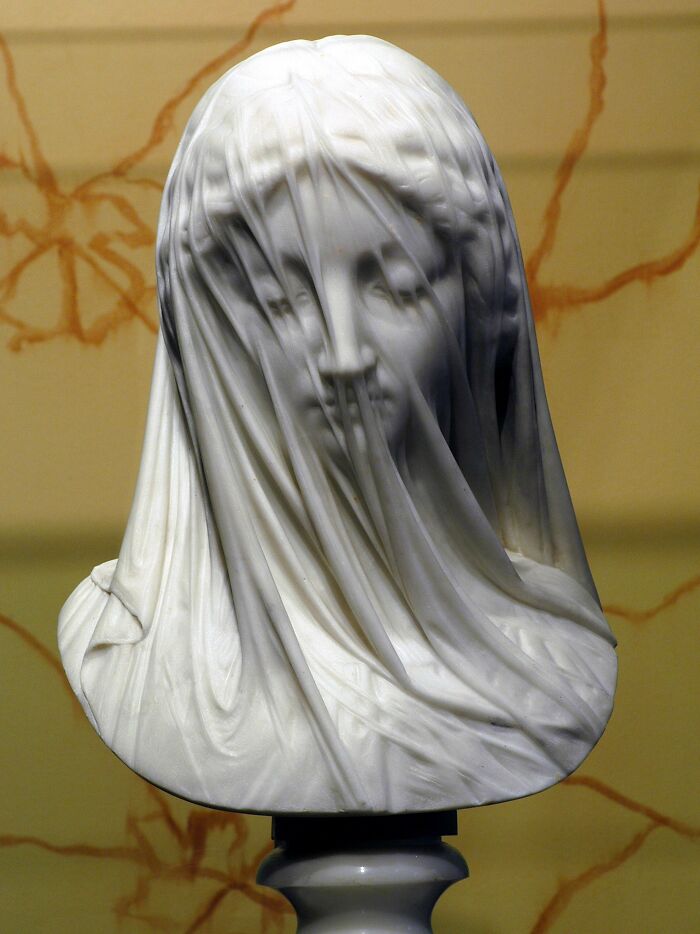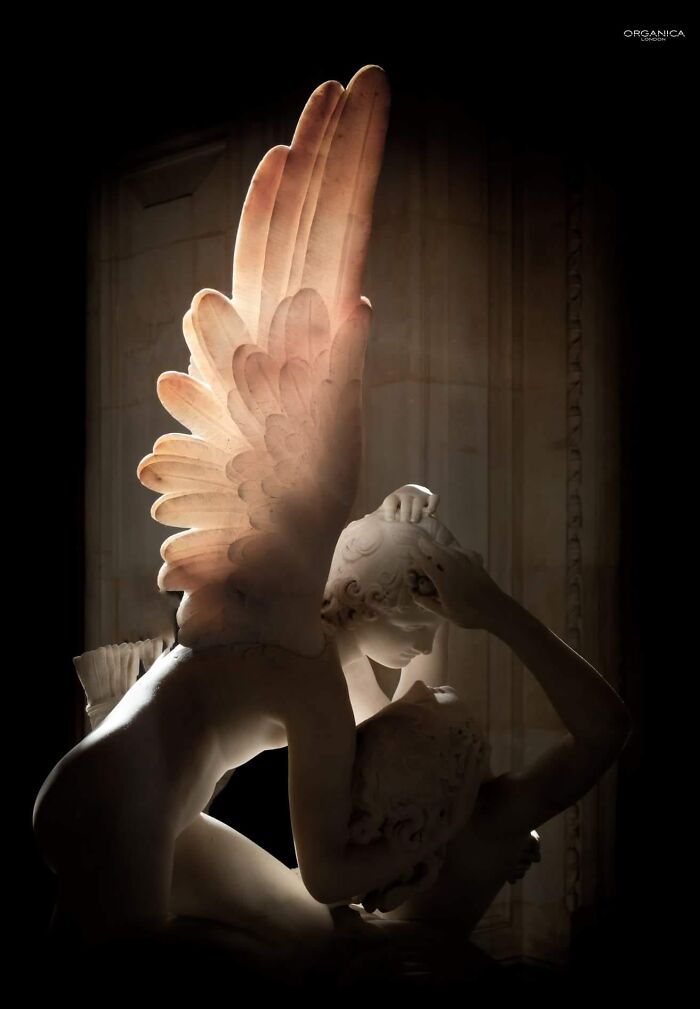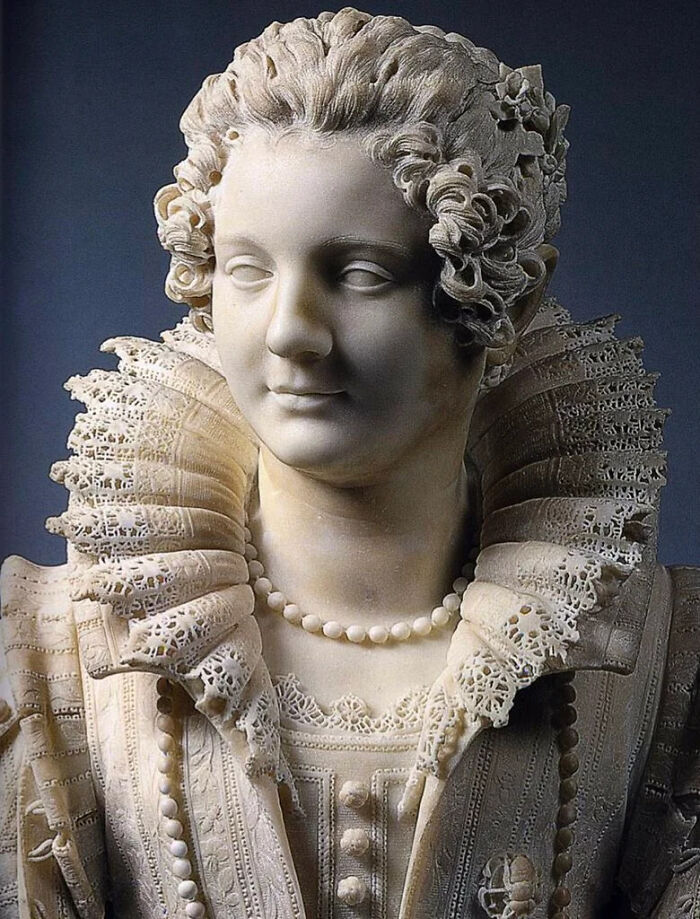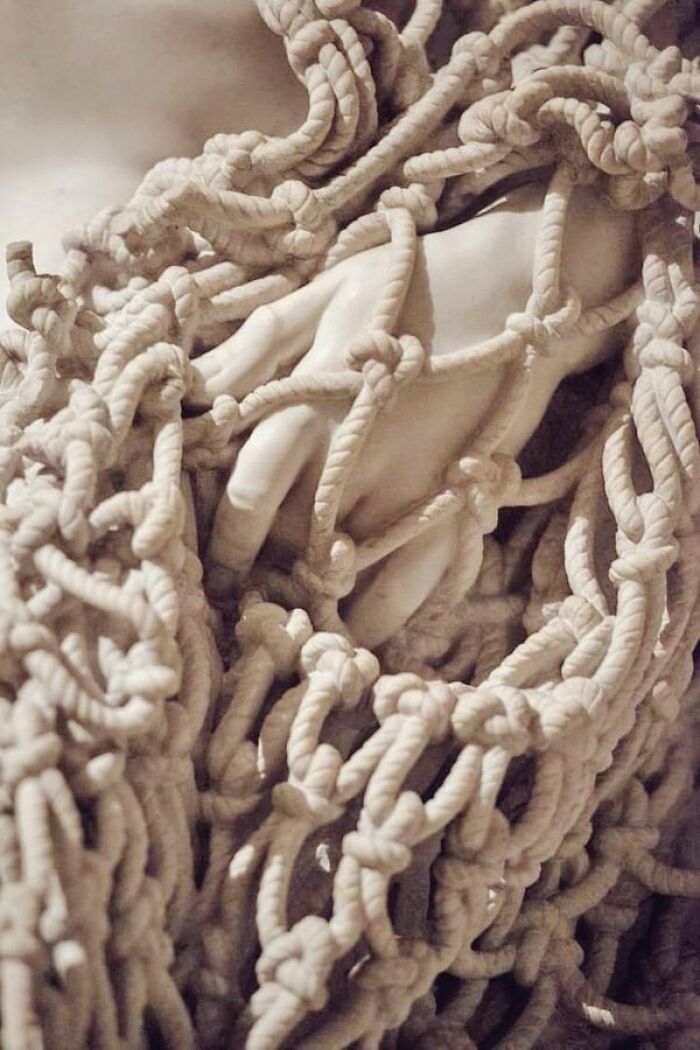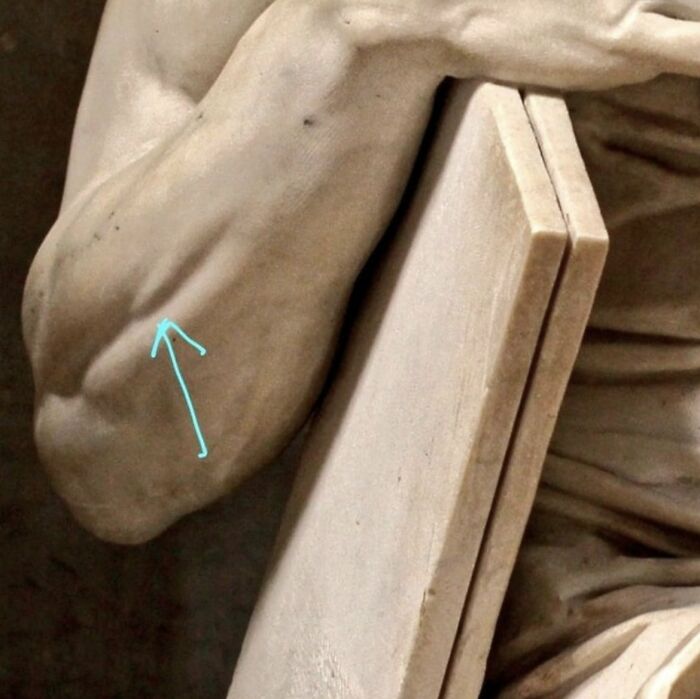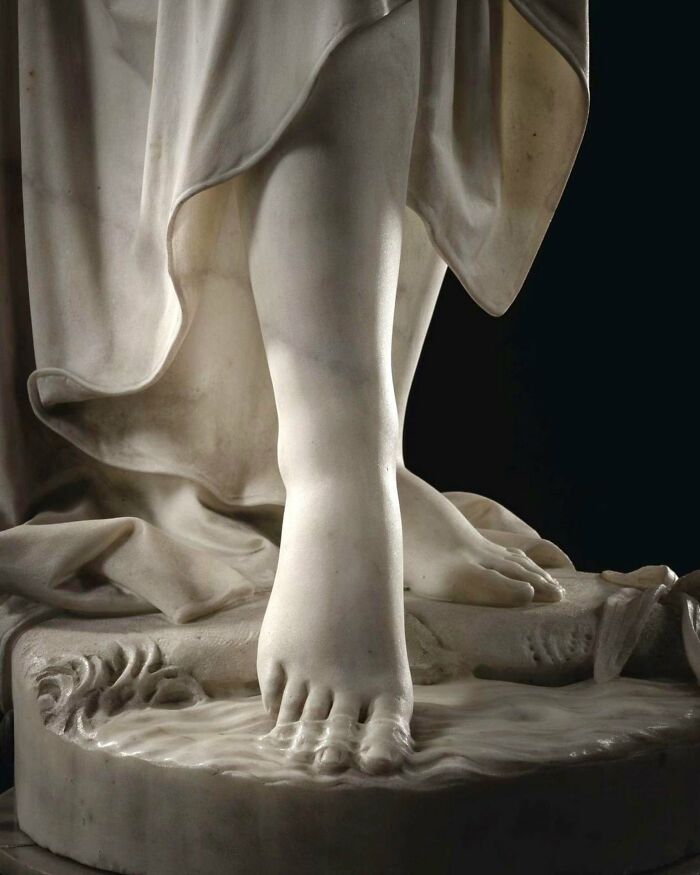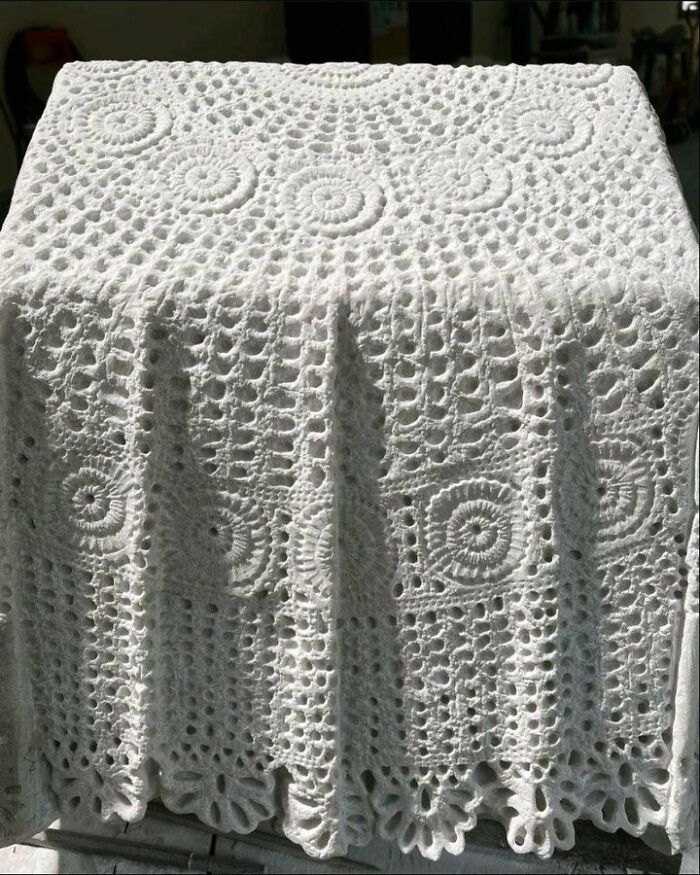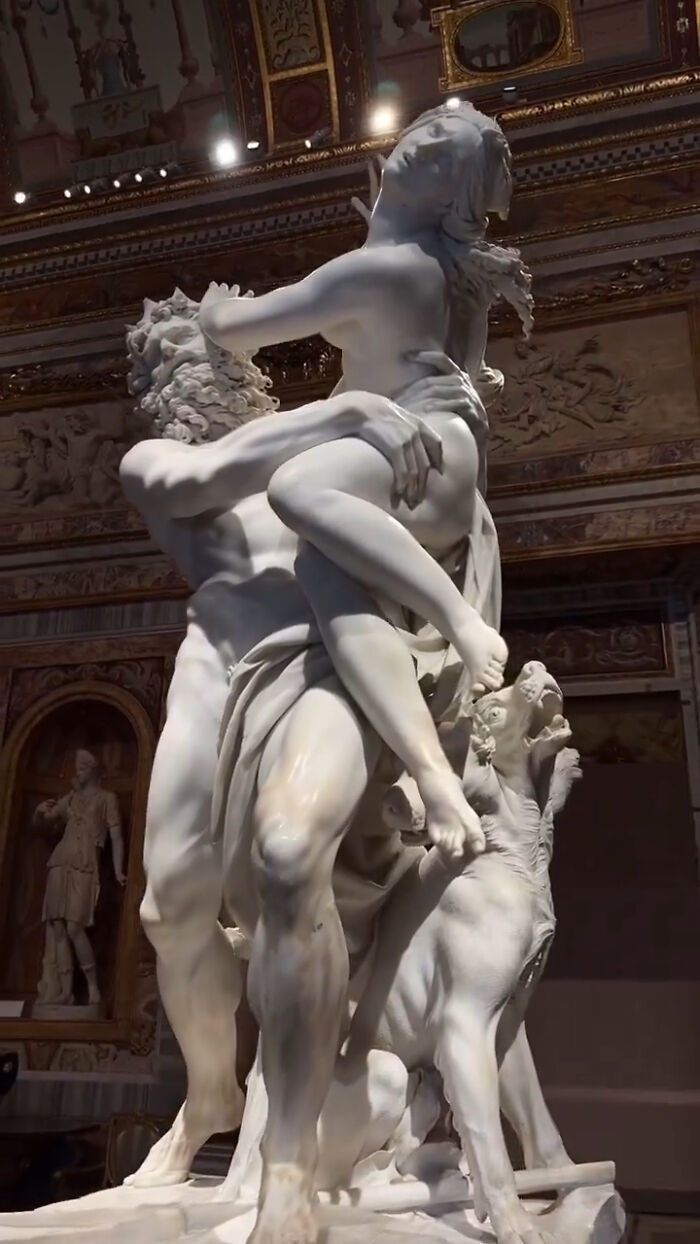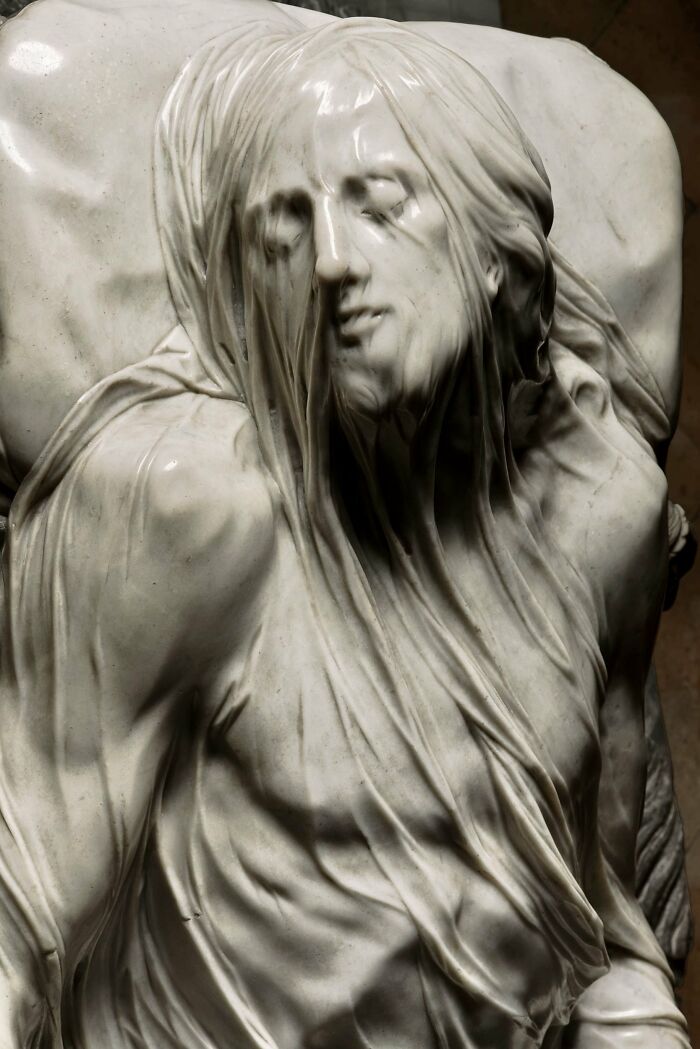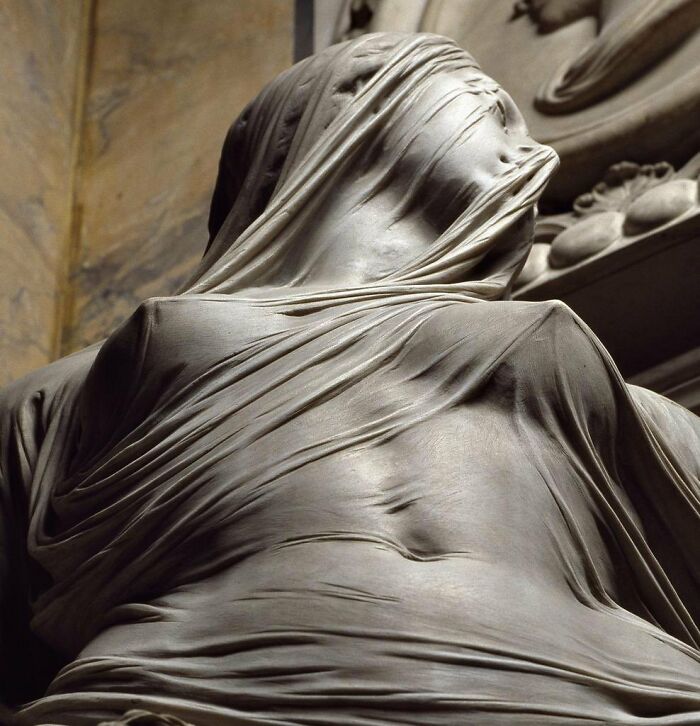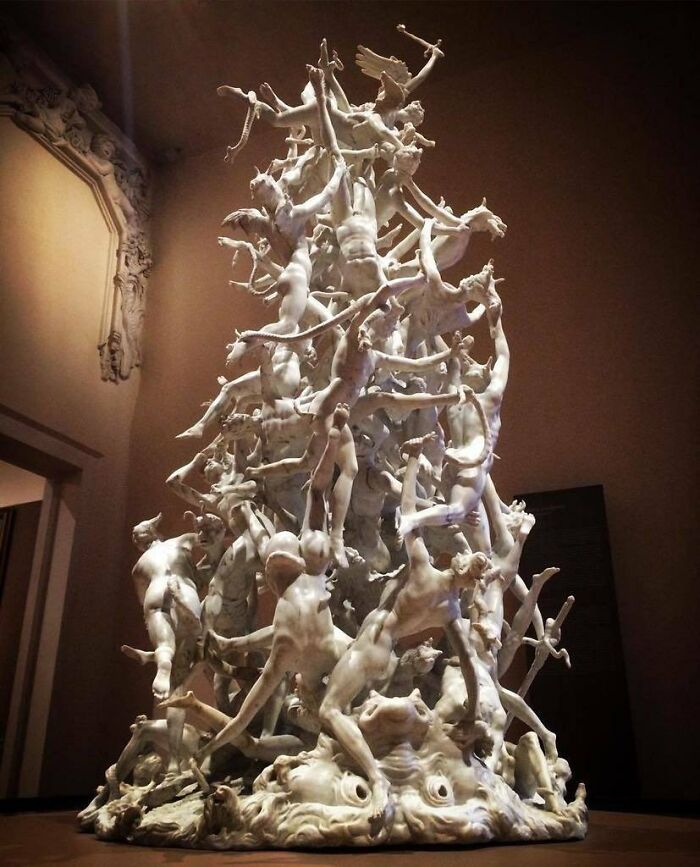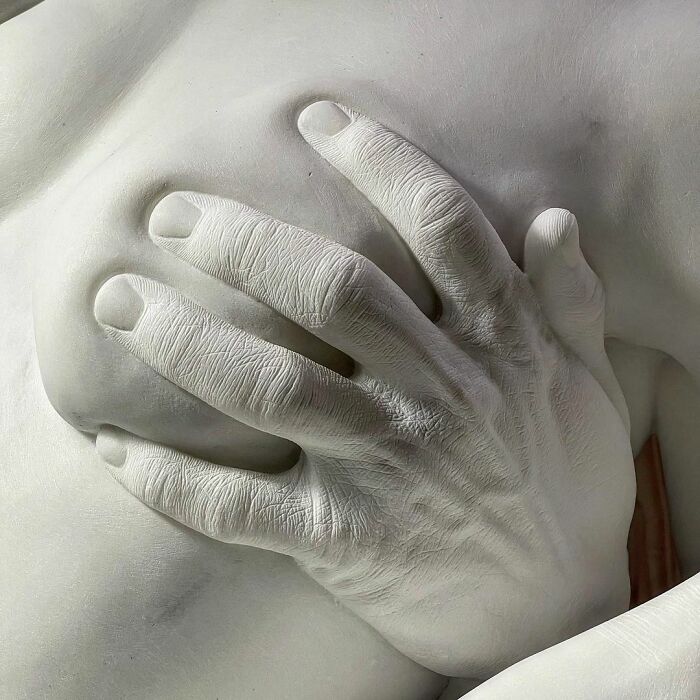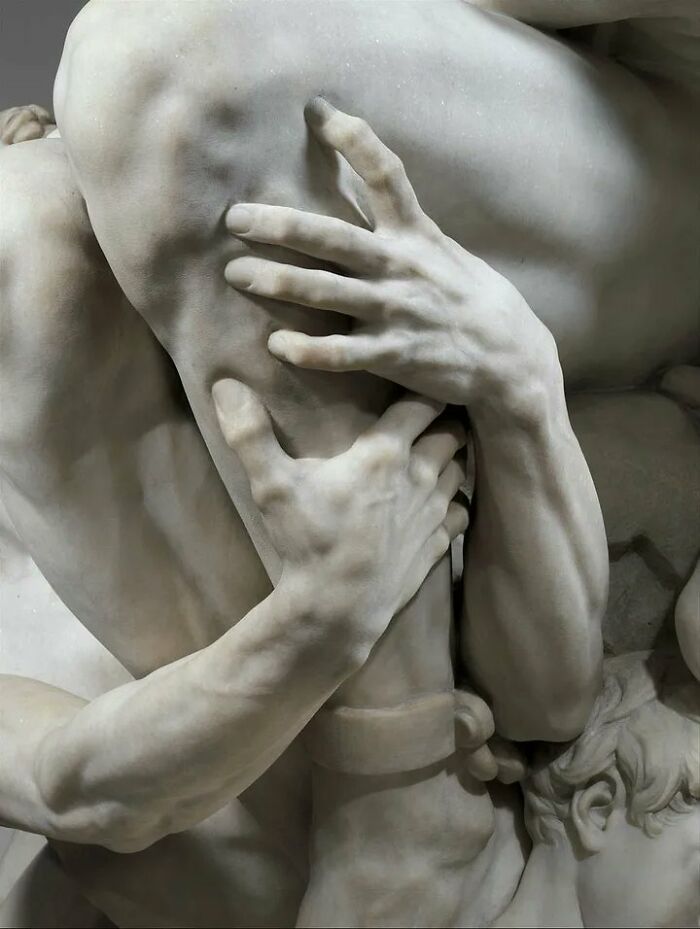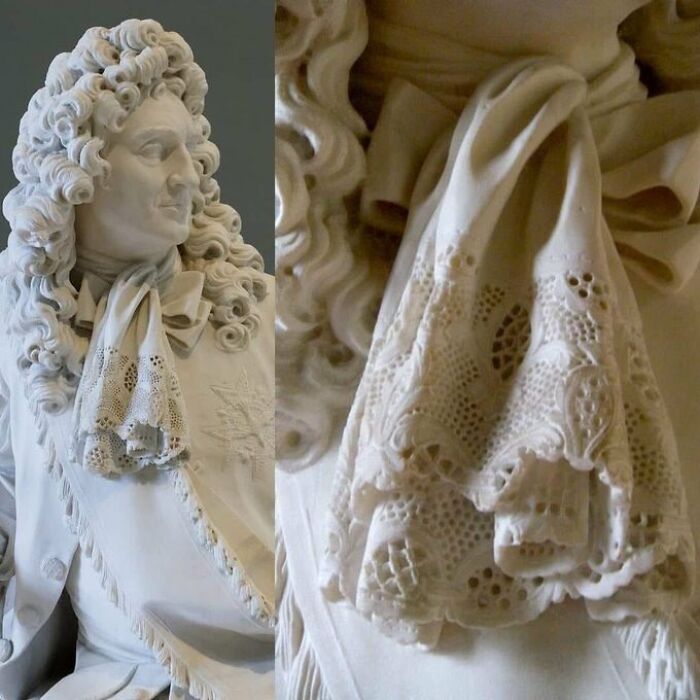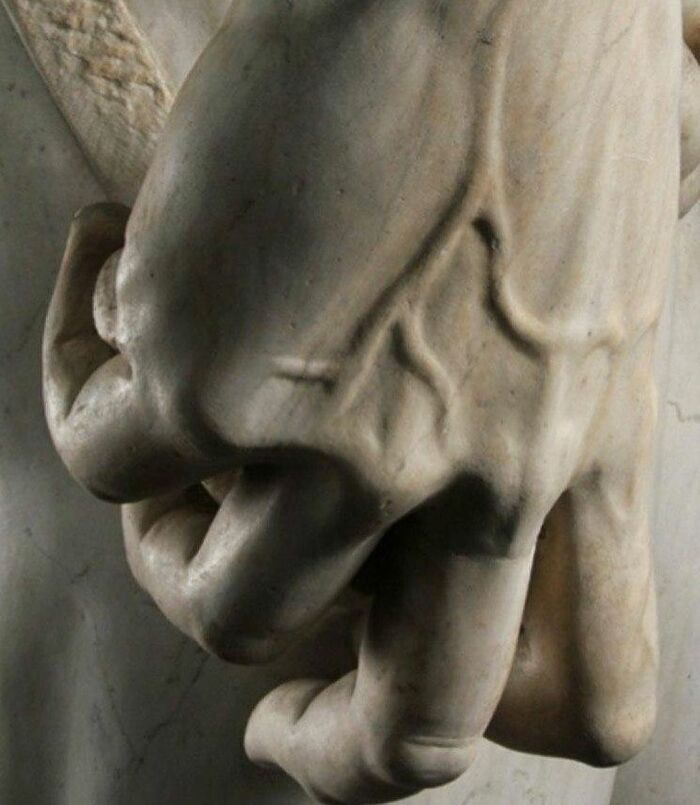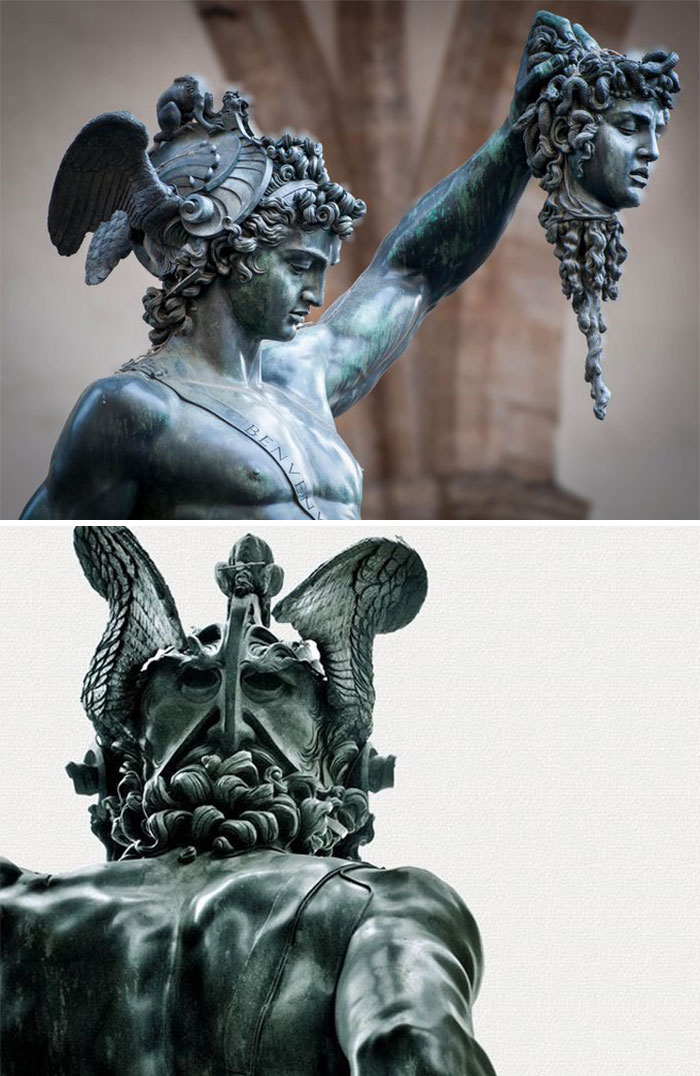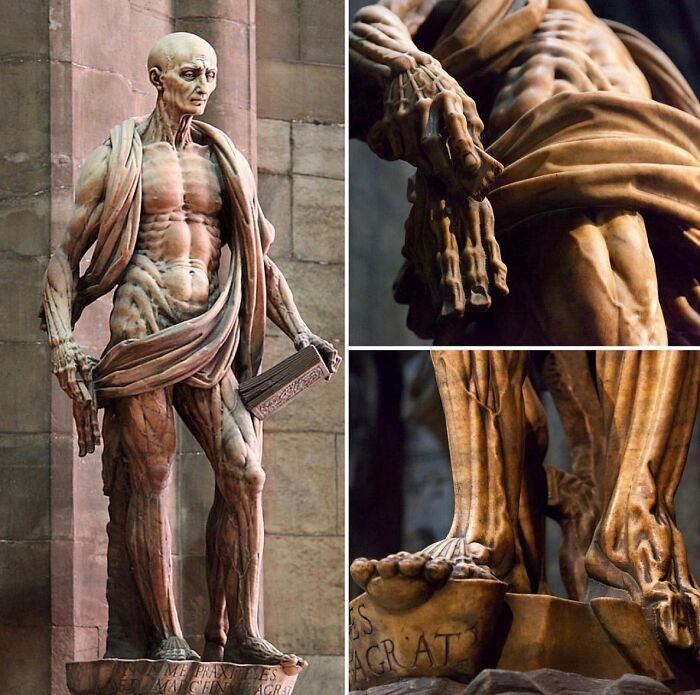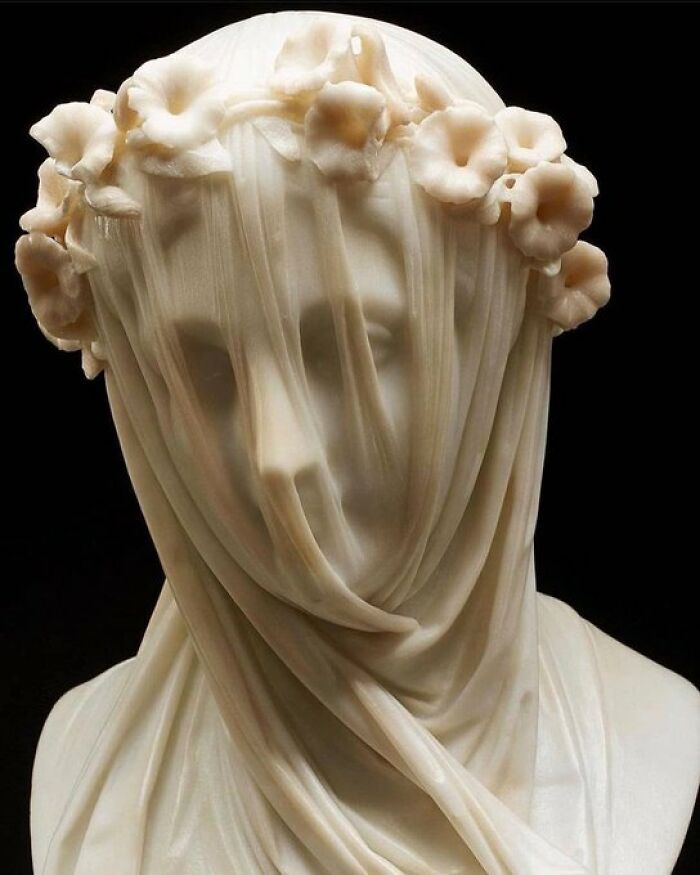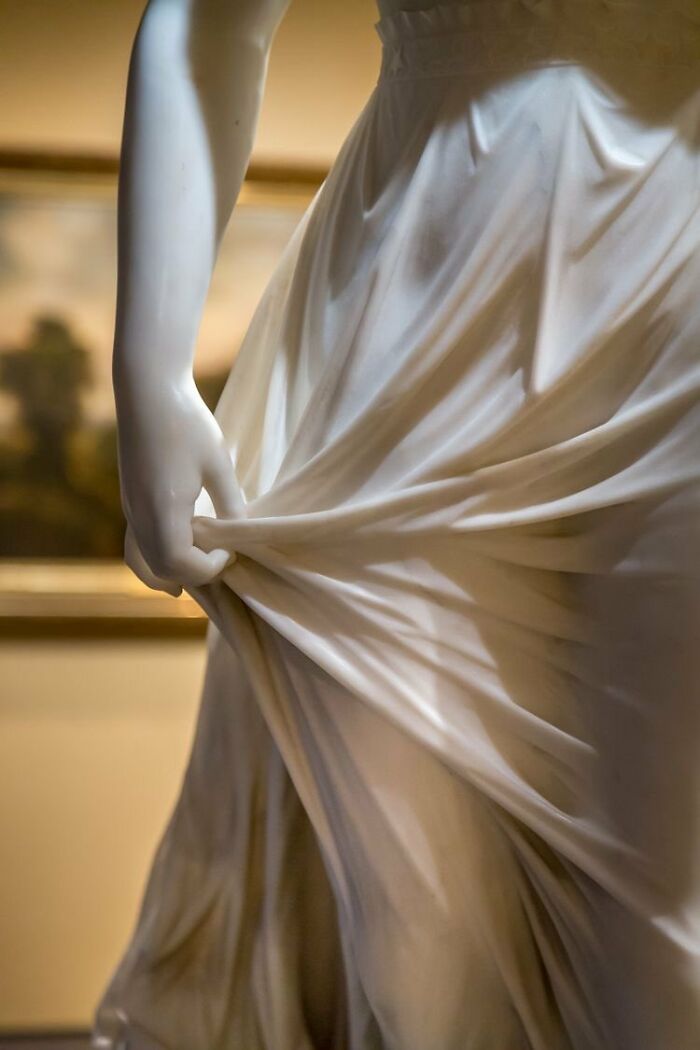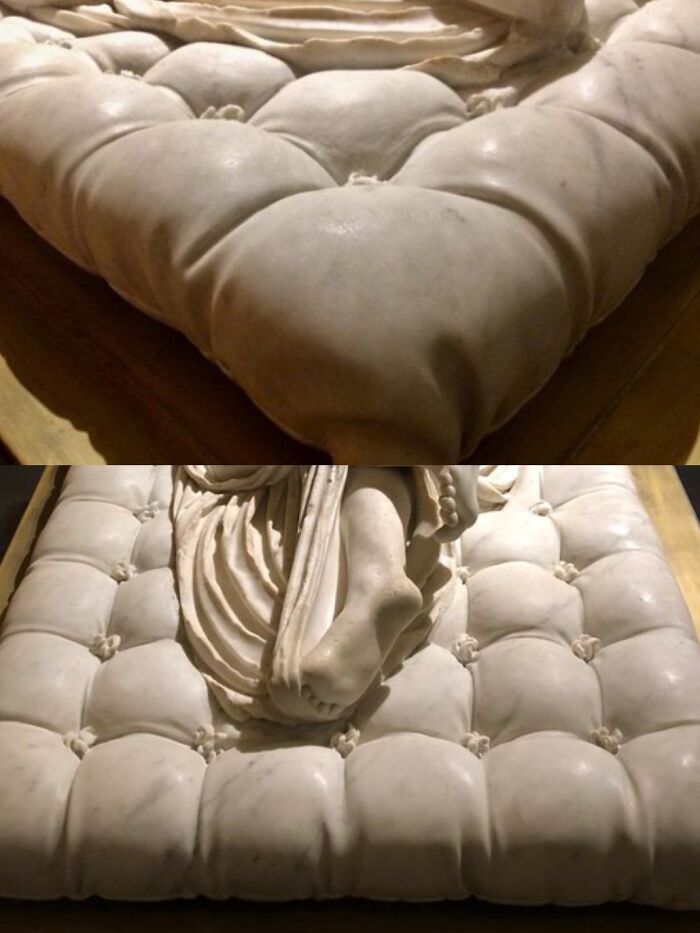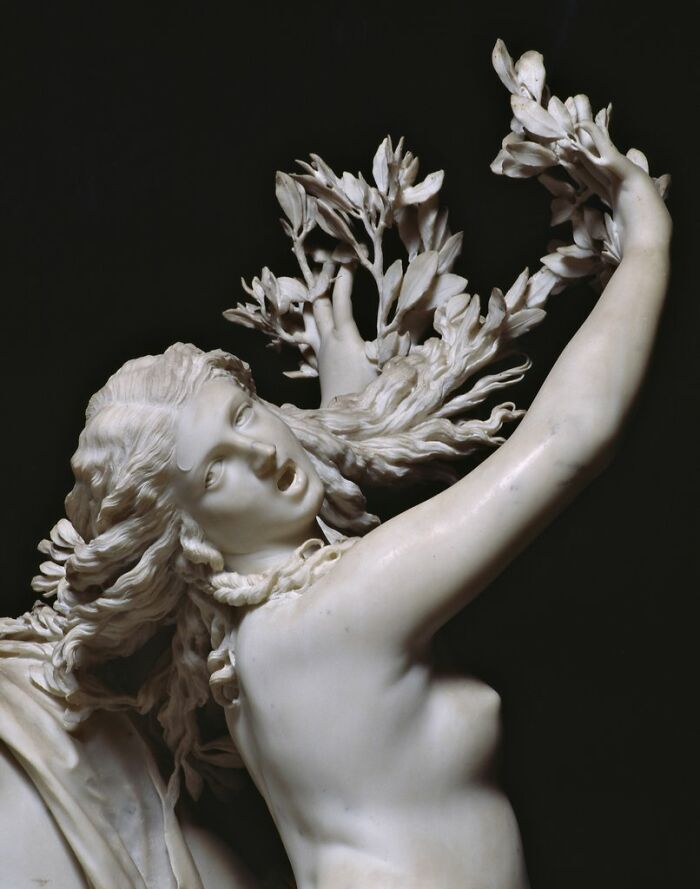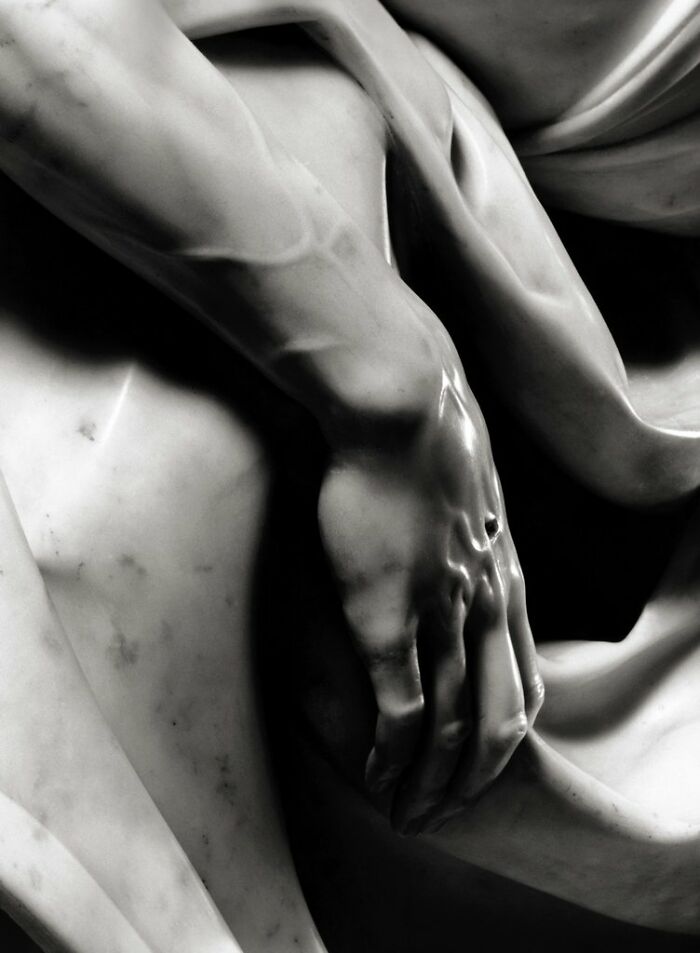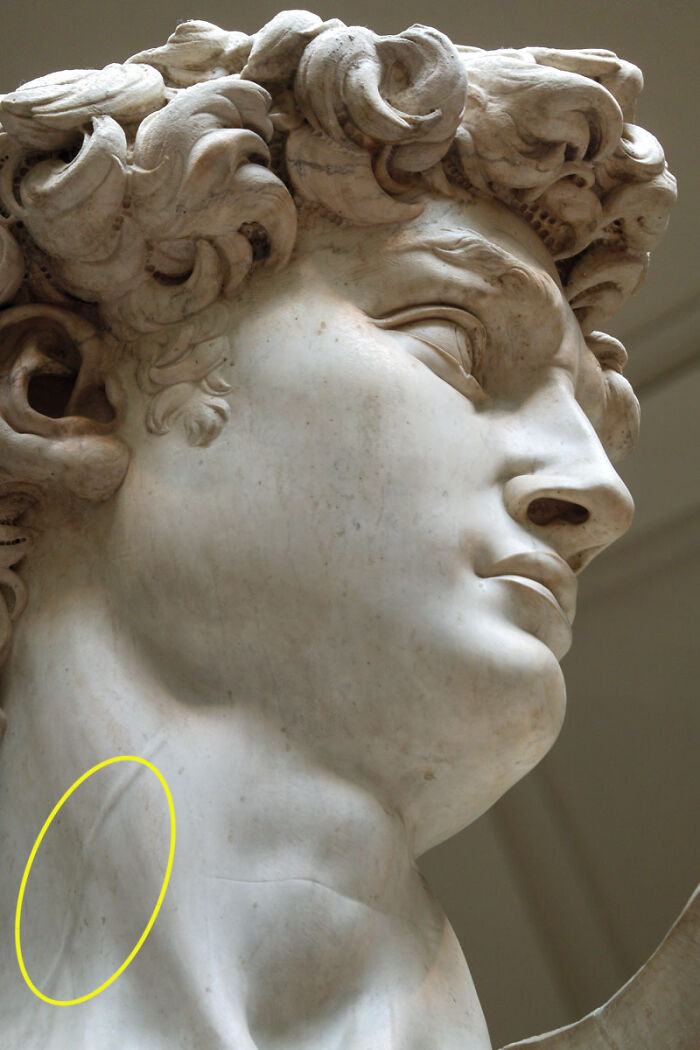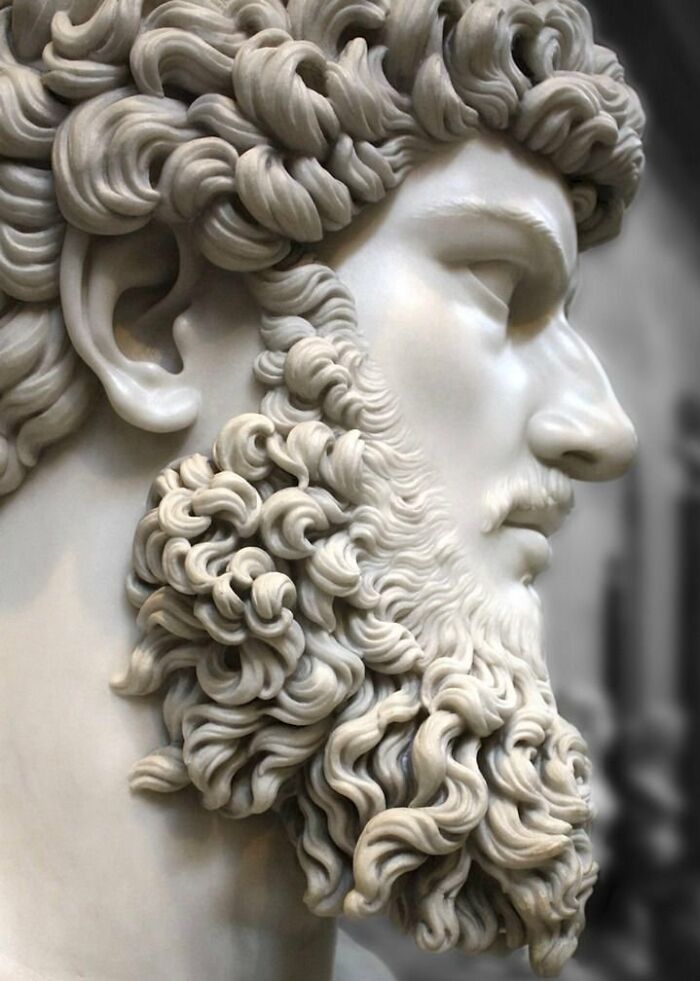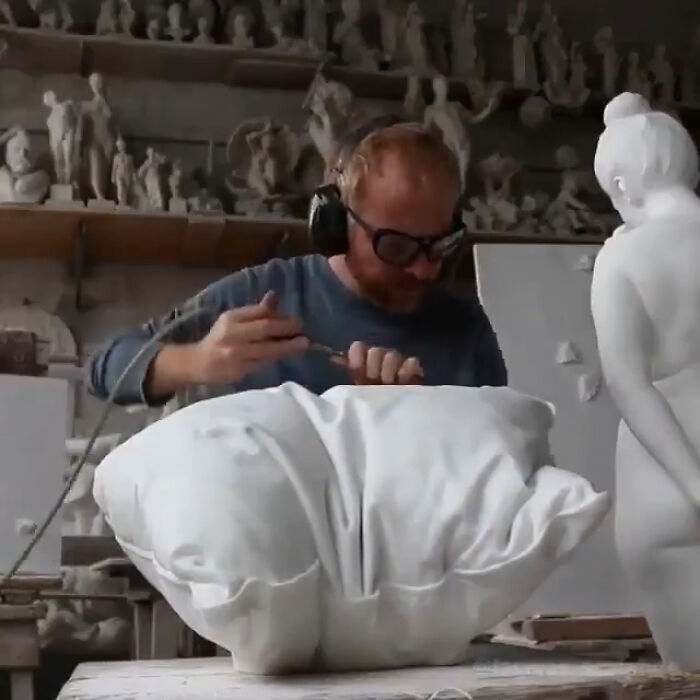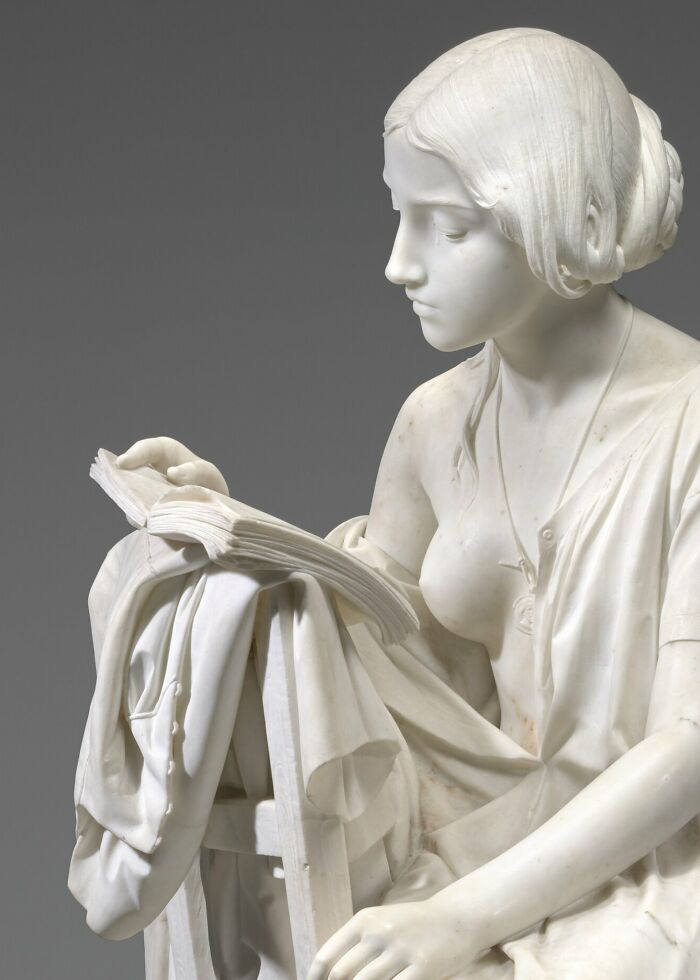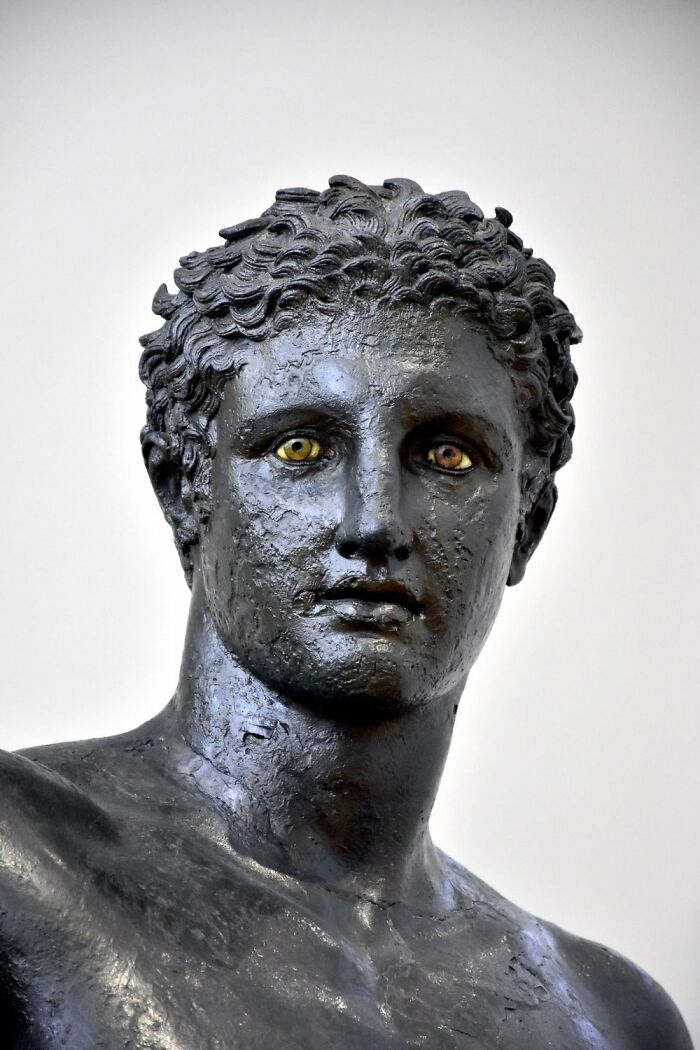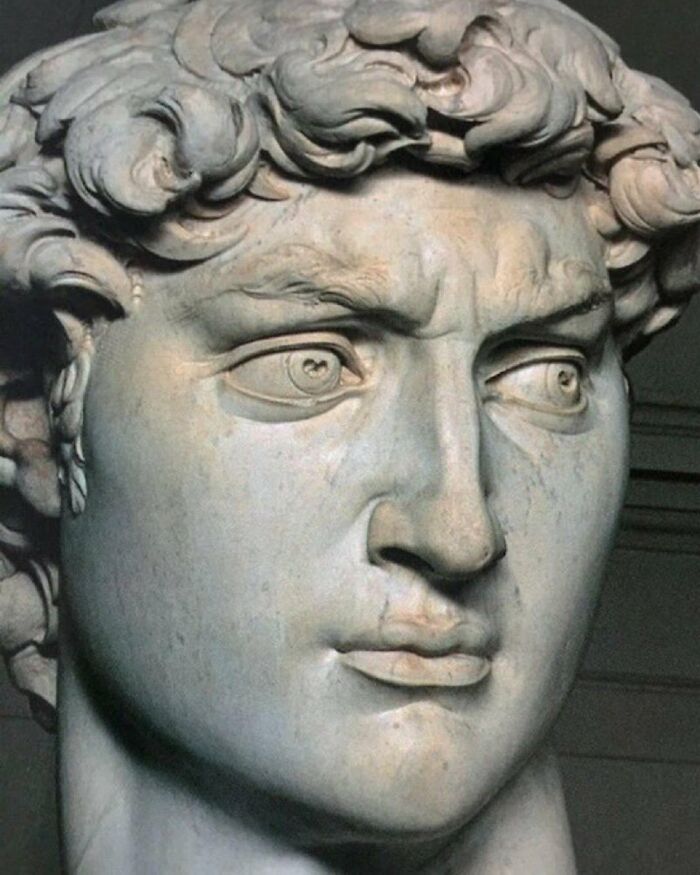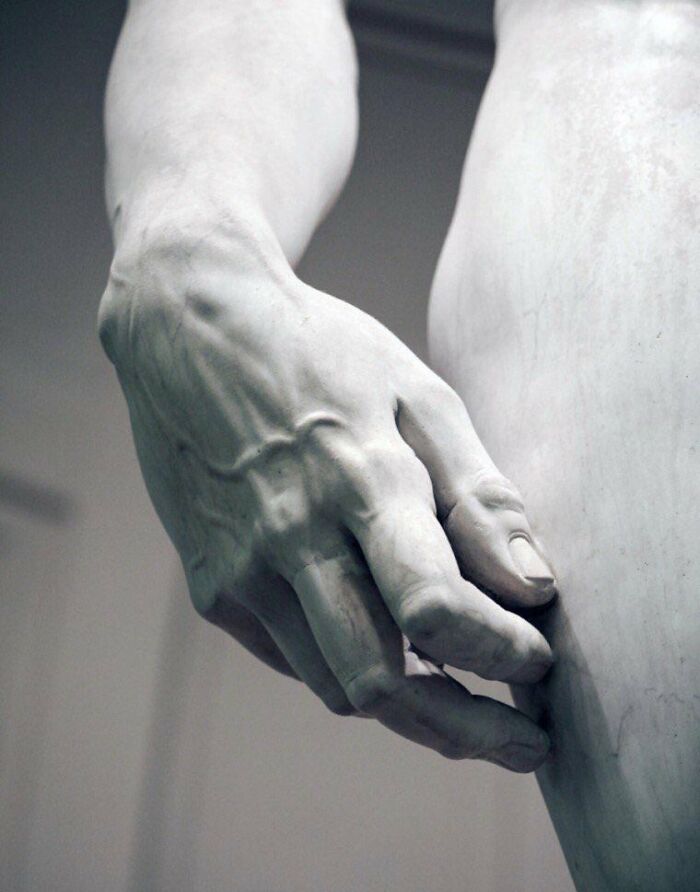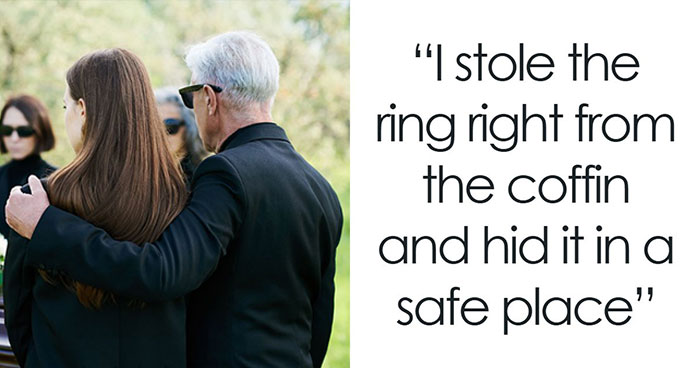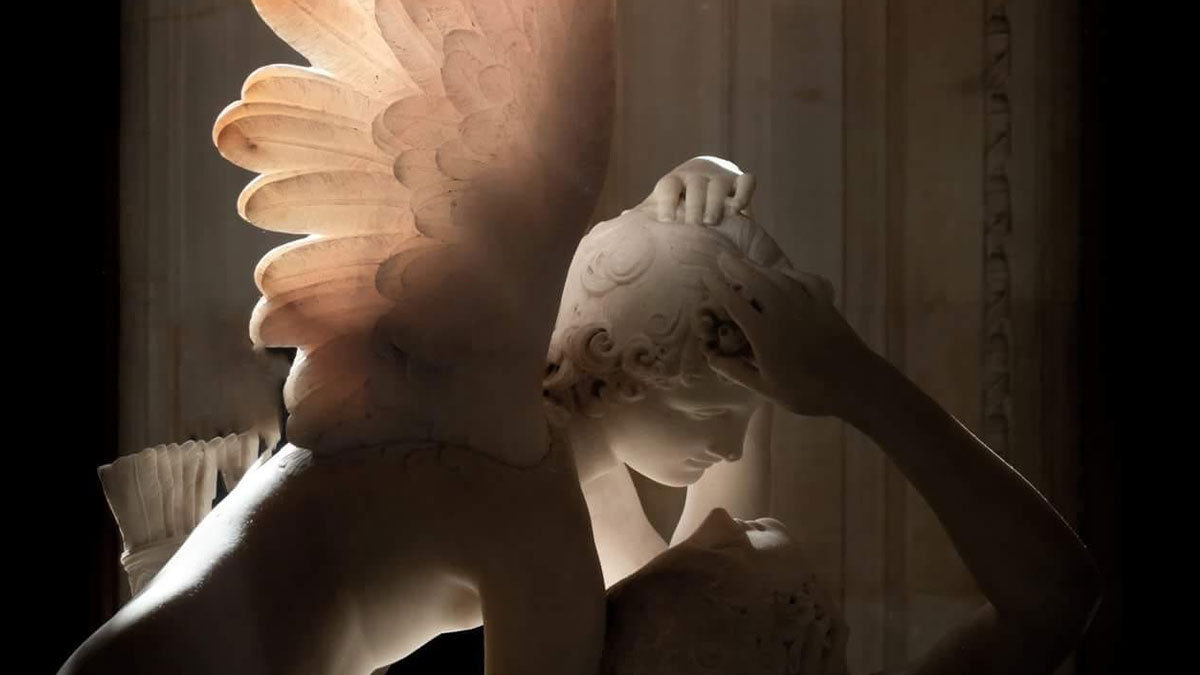
30 Surreal Details On Sculptures That Left People In Awe
Interview With AuthorThere's something eternally fascinating about the art of sculpture, more so when it depicts the human form. Michelangelo, for example, lived and created more than 500 years ago, yet we still marvel at the level of mastery and beauty that he was able to accomplish.
Recently, a Twitter (X) user James Lucas shared some interesting details in sculptures that people sometimes might overlook. For example, did you know that Michelangelo's David has heart-shaped pupils? Scroll down and find more fascinating details about the most famous sculptures in art history!
Bored Panda reached out to the author of this thread, James Lucas. He kindly agreed to tell us more about where he got the inspiration and knowledge about these interesting facts. Read our short conversation with him below!
More info: Twitter (X) | Substack
This post may include affiliate links.
Chauncey Bradley Ives Turned Stone Into Wet Silk In "Undine Rising From The Waters" (1880)
Giovanni Strazza's Ability To Make Stone Translucent In His Bust Of The Virgin Mary
In Canova's Timeless Masterpiece, The Wings Of Cupid Are So Delicately Thin That When Sunlight Touches Them They Shimmer With A Gentle Peach Glow
James Lucas runs a Twitter (X) account and Substack dedicated to great works of art and their beauty. That doesn't mean sculpture exclusively; he also features architecture, paintings, photography, and an occasional goofy accidental Renaissance meme.
This particular thread, James tells us, was inspired by Giovanni Battista Lombardi's Nymph statue. "The level of detail is simply mind-boggling, and it made me reflect on the other surreal details in many sculptures I admire," he told Bored Panda in an email.
Marble Turned Into Lace
Giuliano Finelli's bust of Maria Duglioli Barberini (1626)
This Intricate Net Was Carved From A Single Block Of Marble By Francesco Queirolo. It Took Him 7 Years
No apprentice would touch the sculpture for fear of the delicate net crumbling in their hands.
The Mind-Boggling Detail Of Michelangelo's Moses
There is a tiny contracted muscle in the forearm, which only contracts when the little finger is raised. Moses is lifting the pinky, therefore that tiny muscle is contracted.
anyone else just spend 5 min lifting their pinky and checking their forearm? .......... Just me?
The sculptures are quite captivating in pictures, but seeing them in real life is even more riveting. I remember thinking "It's insane that an actual person did this" when looking at Ancient Roman and Greek sculptures at The Louvre and The MET.
"My father is a sculptor, so I've had the pleasure of seeing many of these remarkable works in person, especially in Italy," James told us. But there is one he's not yet seen and would like to very much. "I would love to see the Veiled Virgin by Giovanni Strazza in St. John's, Newfoundland, Canada," he says.
Water Flowing Over Toes
This Is Not A Cotton Yarn. This Is A Mind-Blowing Marble Sculpture By The Greek Artist Argiris Rallias
Bernini Turned Stone Into Flesh
The legendary Italian sculptor was only 23 years old when he completed "The Abduction of Proserpina".
James' account and the newly launched Substack are all about the beauty of art and beyond. His philosophy is reflected by the last two lines of the John Keats poem "Ode on a Grecian Urn" in the bio: "Beauty is truth, truth beauty,—that is all / Ye know on earth, and all ye need to know." If you want another dose of beauty, be sure to check out his Twitter (X) account and his articles on Substack.
The Marble Veil In Giuseppe Sanmartino's Masterpiece Is So Astonishingly Lifelike That The Artist Was Accused Of Using Alchemy To Turn Fabric Into Stone
I mean of the reasons people were accused of things that don't exist this is one of the fairer ones
The "Veiled Truth" By Antonio Corradini
The Fall Of The Rebel Angels, A 168 Cm (5"6') Statue With More Than Sixty Figures Carved From A Single Block Of Marble By Agostino Fasolato
To be pedantic or not to be pedantic: Five foot six is 5'6", not 5"6'.
Sculpture as an art form dates back to 32,000 years B.C. Back then, of course, small animal and human figures carved in bone, ivory, or stone counted as sculptures. Today, we associate white marble sculptures with Ancient Roman, Greek, and Renaissance art, but some of the statues in this list are even from the 19th century.
Marble Skin
The superb artistry of Jago, one of Italy's most accomplished contemporary artists, is evident in this "Ajax & Cassandra" stunning hand detail.
I want to touch these so bad, but I know everyone else wishes to touch them too, and we would ruin them with our oils, but I'd love to hold his hand.
Stunning Detail Of "Ugolino And His Sons" By Jean-Baptiste Carpeaux
The Handkerchief Detail Of The Duc De Montausier's Marble Statue
Michelangelo's David is often cited as the most recognizable masterpiece of the Renaissance. It's the most loved and reproduced piece of artwork from Florence; there are 30 full-size replicas of David all over the world. The heart-shaped eyes theory has several explanations.
Michelangelo's David Right Hand
Perseus And The Hidden Self-Portrait Of Benvenuto Cellini
This Statue By Marco D’agrate Depicts Saint Bartholomew, An Early Christian Martyr Who Was Skinned Alive
If you look closely, you’ll notice that’s not a robe that he’s holding. It's actually his dissected skin.
Some claim they're not so much heart-shaped as simply reflecting the point where the sun hits the eyes. The technical term is specular highlight. As a heart didn't become a symbol of love until the 1600s, Michelangelo purposefully carving David's pupils into the shapes of hearts wouldn't have made much sense.
The "Veiled Lady" By Raffaele Monti
Amazing Drapery Detail On "The West Wind" By American 19th-Century Sculptor Thomas Ridgeway Gould
This Is Not A Real Mattress. This Is A Marble Mattress Sculpted By Gian Lorenzo Bernini For The "Sleeping Hermaphroditus"
There's one more interesting fact about the sculpture's pupils. Yes, they might be unintentionally heart-shaped, but David is also slightly cross-eyed. Looks like the perfect man isn't so perfect after all, huh? David looks forward with his left eye but gazes at a distant point with his right.
The Hands Of Daphne Transforming Into Branches In "Apollo And Daphne" By Bernini
Michelangelo's Pieta, Arm Detail. Buonarroti Completed This Masterpiece When He Was Just 24 Years Old
Over 100 Years Before Medical Science Described The Circulatory System, Michelangelo Perfectly Sculpted The Jugular Vein In His Statue Of David
This trait is anatomically accurate: the biblical hero is in a state of excitement, as he prepares to face Goliath.
A more humorous take on David's misaligned eyes is that he might've needed glasses to see Goliath. However, experts say that it's highly unlikely Michaelangelo did this on purpose. "It's meant to be seen from a long way up and it's not meant to be viewed face on," Dr. Louise Marshall from the University of Sydney told ABC Australia. "I think the particular way the eyes are carved has everything to do with expressive effects which have to be read at enormous distance."
Emperor Lucius Verus' Beard
Can we have a source or name of the work/sculpture? Very impressive but without a source I’m wondering if it’s ai.
The Level Of Detail In Håkon Anton Fagerås' Marble Pillows
The "Reading Girl" By Pietro Magni
If you look closely at this sculpture, you’ll notice a solitary tear gracefully rolling down the young reader's left cheek. It shows how much the story in the book has affected her.
When I was a girl I always read sitting backwards in a chair with one breast exposed.
Michelangelo knew the human anatomy very well, and his many works, David included, reflect that. He's a symbol of youth and perfection, yet his body proportions are slightly off. Because people would at the statue on the roofline of Opera del Duomo from below, his right hand and head are unusually large. This disproportion also gives the illusion that David is alert and ready for action.
The Piercing Glass Eyes Of The "Antikythera Ephebe", Unknown Greek Sculptor (C.330 Bc)
Michelangelo's David Has Heart-Shaped Pupils
Sculptures often have a slit in the pupils, adding depth or symbolizing the reflection of light. However, in David's case, his eyes possess distinctly heart-shaped pupils.
I don't think they're supposed to be heart-shaped. There is no point at the base, like a Valentine; the shape is merely that of a circle with an indent on the top. My bet is he's simply trying to show light reflecting in David's eyes, and use shadow to make the rest of his eyes appear darker.
The Veins On David's Right Hand
I'm one of those fair-skinned people whose veins also get very prominent when stressed or overheated. So much so, that others will sometimes remark on it or ask if I'm all right. This detail makes me appreciate Michelangelo's skill.even more.
Which little details from these sculptures surprised you the most, Pandas? Or maybe you already knew them? If you know any more interesting facts about the world's most famous sculptures, be sure to share them with us in the comments, and don't forget to upvote your favorites in this list!
The captivating art form of sculpture has always intrigued art lovers, as it meets at the intersection of beauty and skill. It is fascinating to observe the remarkable details as seen in masterpieces like Michelangelo's David or the detailed work found in Genoese artist Francesco Queirolo's sculptures.
The extraordinary craftsmanship involved in creating such pieces is reminiscent of the intricate work needed for elaborate marble constructs made over centuries.
what boggle me is how some of them did such fine sculpting. Today we have grinding tool for fine work but without them I'm curious of the exact methods. I always think hammer and chisel, but the amount of time polishing is mind boggling.
Sculptor here : You might be surprised with the variety of tools used in the past, such as the (drilling) bow, rifles, et c. But I would say that the main ingredient was time, as time allowed thinking. What today is regarded as slow (and maybe vain) was the right pace.
Load More Replies...what boggle me is how some of them did such fine sculpting. Today we have grinding tool for fine work but without them I'm curious of the exact methods. I always think hammer and chisel, but the amount of time polishing is mind boggling.
Sculptor here : You might be surprised with the variety of tools used in the past, such as the (drilling) bow, rifles, et c. But I would say that the main ingredient was time, as time allowed thinking. What today is regarded as slow (and maybe vain) was the right pace.
Load More Replies...
 Dark Mode
Dark Mode 

 No fees, cancel anytime
No fees, cancel anytime 


